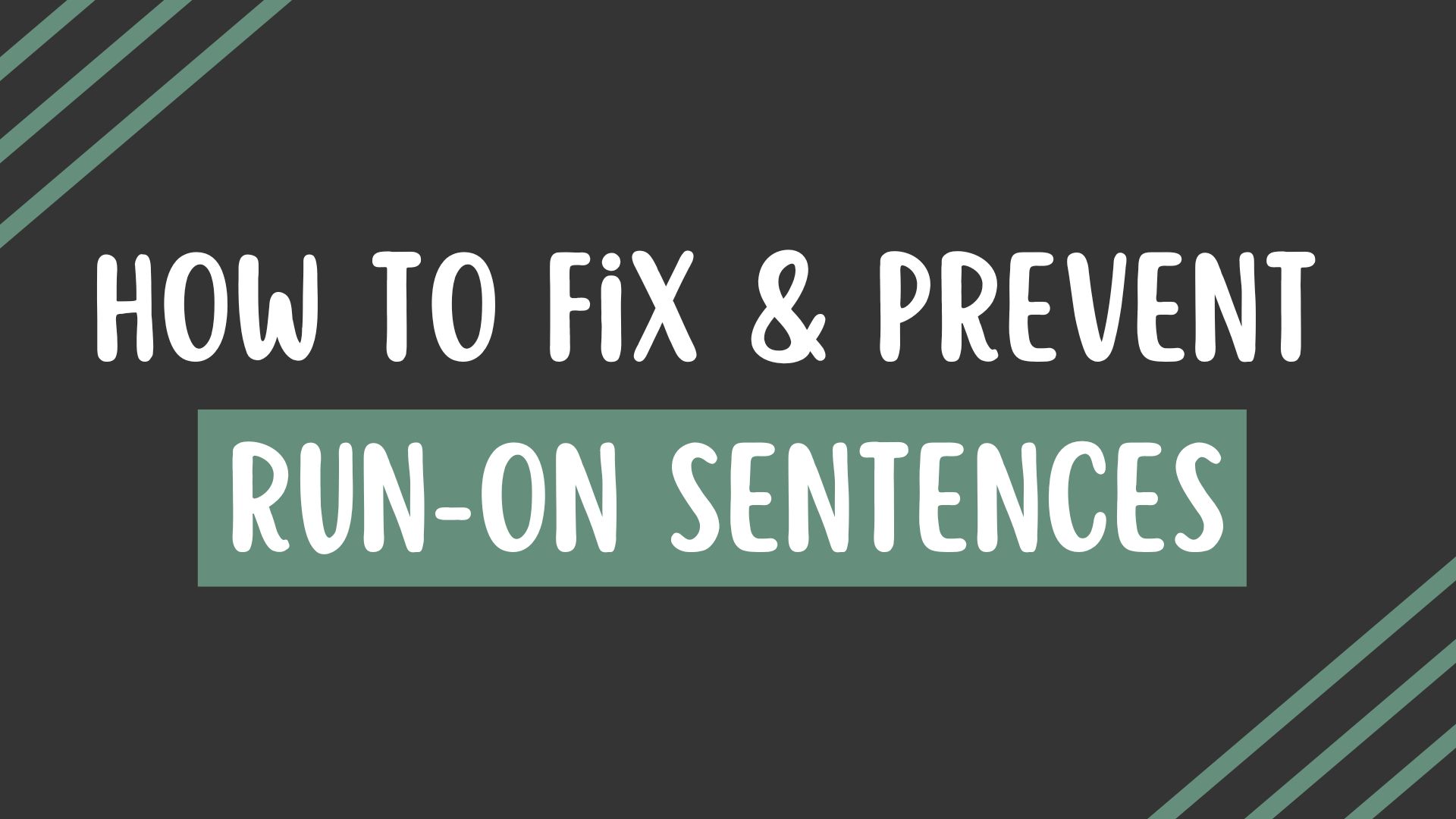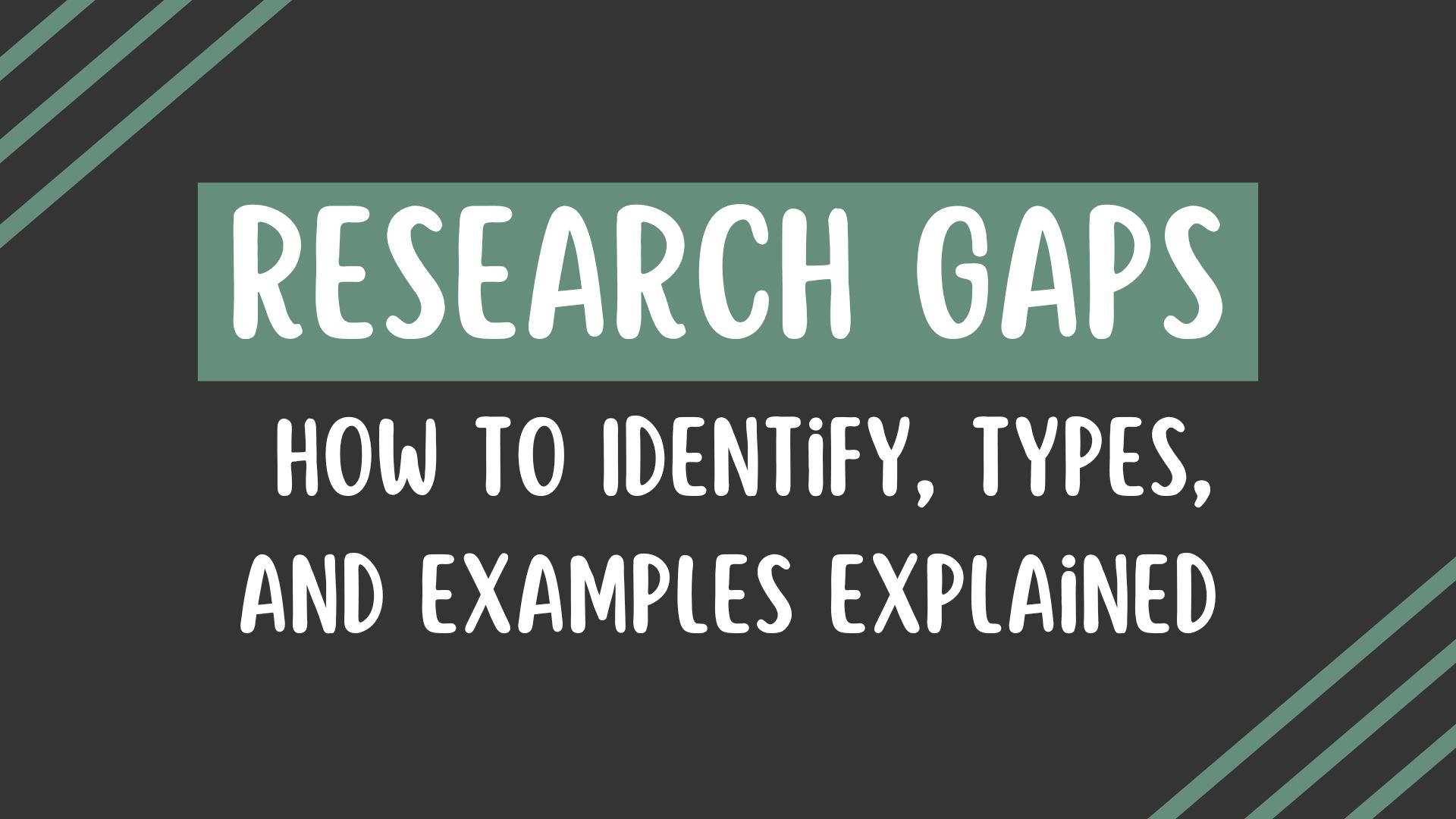

Topic Sentence vs. Thesis Statement: What’s the Difference?
- September 27, 2024
Dr. Marvin L. Smith
When writing an essay or research paper, two essential elements can make or break your argument: the topic sentence and thesis statement . While often confused with each other, these two sentences serve distinct purposes in your writing.
In this article, I’ll break down the difference between a topic sentence and a thesis statement, helping you craft a clear and compelling argument that will engage your readers and set you up for success.
Table of Contents
What is a topic sentence?
A topic sentence is a sentence that clearly states the main idea of a paragraph or section in your writing. It’s the sentence that tells your readers what the rest of the paragraph will be about, providing a roadmap for the supporting details and evidence that will follow.
Think of it as a mini-thesis statement for a single paragraph. A well-crafted topic sentence should be concise, specific, and focused, giving your readers a clear sense of direction and helping them understand the purpose of the paragraph.
Examples of topic sentence
Here are a few examples of effective topic sentences:
- “The benefits of regular exercise include improved physical health, increased energy levels, and enhanced mental well-being.”
- “The invention of the printing press revolutionized the way people consumed information, making books more widely available and contributing to a significant increase in literacy rates.”
- “The city of Paris, known for its stunning architecture, rich history, and vibrant culture, is a popular destination for tourists from around the world.”
Notice how each of these sentences provides a clear direction for the rest of the paragraph, setting the stage for supporting details and evidence.
Features of topic sentence
A good topic sentence should have the following features:
- Clear and concise language : Avoid using jargon or overly complex language that might confuse your readers.
- Specificity : A topic sentence should clearly state the main idea of the paragraph, without being too broad or vague.
- Focus : A good topic sentence should stay focused on one main idea, avoiding distractions or tangents.
- Relevance : The topic sentence should be relevant to the rest of the paragraph, setting the stage for the supporting details and evidence that will follow.
- Engaging tone : A topic sentence should be written in an engaging and interesting way, drawing the reader in and making them want to learn more.
Want to generate a topic sentence for your essay?
Check out our free topic sentence generator (no sign-up required, 100% Free to use)
What is a thesis statement?
A thesis statement is a sentence that clearly states the main argument or point of your entire essay or research paper . It’s a concise summary of your main claim , and it sets the tone for the rest of your writing.
A good thesis statement should be specific, arguable, and relevant to the topic, providing a roadmap for the rest of your essay . Think of it as the ultimate guide for your readers, helping them understand the purpose and direction of your writing.
Examples of thesis statement
Here are a few examples of effective thesis statements:
- “While some argue that standardized testing is necessary for evaluating student progress, I believe that it is a flawed system that stifles creativity and critical thinking.”
- “The rise of social media has had a profound impact on the way we communicate, but it has also contributed to a decline in face-to-face interactions and deepened social isolation.”
- “Despite the benefits of a vegan diet, a balanced and moderate approach to meat consumption can be a healthier and more sustainable choice for many individuals.”
Notice how each of these sentences takes a clear stance on a topic, providing a roadmap for the rest of the essay and setting the stage for supporting evidence and arguments.
Features of thesis statement
A good thesis statement should have the following features:
- Specificity : A thesis statement should clearly state the main argument or point of the essay, without being too broad or vague.
- Arguability : A good thesis statement should be arguable, meaning that it takes a clear stance on a topic and invites debate or discussion.
- Relevance : The thesis statement should be relevant to the topic and the rest of the essay, setting the stage for the supporting evidence and arguments that will follow.
- Originality : A thesis statement should offer a fresh perspective or insight, rather than simply restating a well-known fact or opinion.
- Clarity : A thesis statement should be written in clear and concise language, avoiding jargon or overly complex terminology that might confuse readers.
- Focus : A good thesis statement should stay focused on one main idea, avoiding distractions or tangents that might dilute the argument.
Want to generate a compelling thesis statement?
Check out our free thesis statement generator (no sign-up required, 100% Free to use)
Topic Statement vs. Thesis statement: What’s the difference?
While both topic sentences and thesis statements are essential elements in writing, they serve distinct purposes and have different characteristics.
Understanding the difference between the two can help you craft a clear and compelling argument that will engage your readers and set you up for success.
The main difference
The main difference between a topic sentence and a thesis statement is their scope and purpose. A topic sentence is a sentence that clearly states the main idea of a single paragraph or section, while a thesis statement is a sentence that clearly states the main argument or point of the entire essay or research paper.
Key differences
- Scope : A topic sentence has a narrower scope, focusing on a single paragraph or section, while a thesis statement has a broader scope, encompassing the entire essay or research paper.
- Purpose : A topic sentence aims to introduce the main idea of a paragraph or section, while a thesis statement aims to present the main argument or point of the entire essay or research paper.
- Tone : A topic sentence is often more neutral, providing a straightforward introduction to the main idea, while a thesis statement is often more persuasive, taking a clear stance on a topic and inviting debate or discussion.
- Length : A topic sentence is usually shorter and more concise, while a thesis statement can be longer and more detailed, depending on the complexity of the argument.
Get a Head Start with Our Free AI Tools
Need help crafting a topic sentence or thesis statement? We’ve got you covered!
Our free AI tools can help you generate a clear and compelling topic sentence or thesis statement in just a few clicks.
Try out our:
- Topic Sentence Generator
- Thesis Statement Generator
These tools use advanced AI & NLP technology to help you create a strong foundation for your writing.
Simply input your topic or idea, and our tools will provide you with a suggested topic sentence or thesis statement.
Get started today and take the first step towards writing success!
Final thoughts
By understanding the difference between a topic sentence and a thesis statement, you’ll be able to craft a clear and compelling argument that engages your readers and sets you up for success, transforming your writing from a collection of ideas to a cohesive and persuasive message.
What is the difference between thesis statement and topic sentence?
The main difference between a thesis statement and a topic sentence is their purpose and scope. A topic sentence is a sentence that introduces the main idea of a paragraph, while a thesis statement is a sentence that summarizes the main argument or point of an entire essay or text. A thesis statement is typically more specific, arguable, and comprehensive than a topic sentence.
What do topic sentences and thesis statements have in common?
Topic sentences and thesis statements share 4 key similarities:
- Introduce main ideas: Both introduce the main idea of a paragraph or text.
- Clear and concise: Both should be easy to understand and free of unnecessary words.
- Provide a roadmap: Both help readers understand what to expect from the rest of the paragraph or text.
- Organize writing: Both play a crucial role in structuring writing, making it easier for readers to follow the author’s argument.
Ready to transform your writing experience?
Sign up for Blainy today and start writing your papers with confidence!

About the Author:
Leave a comment cancel reply.
You must be logged in to post a comment.

How to Fix and Prevent Run-on Sentences

Research Gaps: How to Identify, Types, and Examples Explained

Is Using ChatGPT Cheating?

Blainy vs. ChatGPT

FANBOYS: Coordinating Conjunctions

Research Findings Guide: Examples, Types, and Structuring Tips

Academic writing made brilliantly simple, always.
Limited time offers 🎁🎉.
Black Friday Sale
Cyber Monday Sale
Discover More
50+ Free AI Tools
Feature Updates
✉ [email protected]
✆ +971 50 760 0820
📍190 Hackett Inlet, Eastern Region, Dubai, UAE.
Terms & Condition
Privacy Policy
Copyright © 2024 Blainy
Thesis vs. Topic Sentence
What's the difference.
A thesis statement and a topic sentence are both essential components of academic writing, but they serve different purposes. A thesis statement is a concise and arguable claim that presents the main idea or argument of an essay or research paper. It provides a roadmap for the entire piece of writing and guides the reader on what to expect. On the other hand, a topic sentence is a statement that introduces the main idea of a paragraph. It acts as a mini-thesis within the larger context of the thesis statement, focusing on a specific aspect or supporting point. While a thesis statement is typically found at the end of an introduction, a topic sentence is usually the first sentence of a paragraph.
Further Detail
Introduction.
When it comes to academic writing, two essential components that play a crucial role in structuring an essay or research paper are the thesis statement and the topic sentence. Both the thesis statement and the topic sentence serve as guiding principles for the entire piece of writing, providing a clear focus and direction. While they share similarities in their purpose, they also have distinct attributes that set them apart. In this article, we will explore the characteristics of both the thesis statement and the topic sentence, highlighting their importance and differences.
Thesis Statement
A thesis statement is a concise and declarative sentence that presents the main argument or claim of an essay or research paper. It is typically found in the introductory paragraph and sets the tone for the entire piece of writing. The thesis statement is often considered the backbone of the paper, as it provides a roadmap for the reader and guides the writer's thought process.
One of the key attributes of a thesis statement is its specificity. It should clearly state the main point or argument of the paper, leaving no room for ambiguity. A well-crafted thesis statement is focused and precise, allowing the reader to understand the writer's stance on the topic from the very beginning.
Furthermore, a thesis statement should be arguable. It should present a claim that can be supported or refuted through evidence and logical reasoning. This attribute distinguishes a thesis statement from a mere statement of fact. By presenting an arguable claim, the writer invites the reader to engage with the topic and consider different perspectives.
In addition, a thesis statement should be concise and to the point. It should capture the essence of the writer's argument without unnecessary elaboration. This brevity ensures that the thesis statement remains clear and impactful, avoiding confusion or ambiguity.
Lastly, a thesis statement should be placed at the end of the introductory paragraph. This positioning allows it to serve as a transition between the introduction and the body paragraphs, providing a smooth flow of ideas and setting the stage for the subsequent discussion.
Topic Sentence
Similar to a thesis statement, a topic sentence plays a vital role in structuring a paragraph within an essay or research paper. While a thesis statement encompasses the entire paper, a topic sentence focuses on a specific paragraph or section. It serves as a mini-thesis, summarizing the main idea of the paragraph and connecting it to the overall argument.
One of the primary attributes of a topic sentence is its clarity. It should clearly state the main point of the paragraph, allowing the reader to understand its purpose and relevance. A well-crafted topic sentence provides a concise preview of the information that will be discussed in the paragraph, guiding the reader through the writer's thought process.
Furthermore, a topic sentence should be unified. It should address only one main idea or argument, avoiding the inclusion of unrelated or extraneous information. This attribute ensures that the paragraph remains focused and coherent, enhancing the overall clarity and effectiveness of the writing.
In addition, a topic sentence should be placed at the beginning of the paragraph. This positioning allows it to serve as a clear transition from the previous paragraph and provides a logical flow of ideas throughout the essay or research paper. By starting with a strong topic sentence, the writer sets the stage for the subsequent discussion and helps the reader navigate through the content smoothly.
Lastly, a topic sentence should be supported by evidence and examples. It should not only present the main idea but also provide sufficient information to validate or illustrate the point being made. By including supporting details, the writer strengthens the argument and enhances the overall persuasiveness of the paragraph.
In conclusion, both the thesis statement and the topic sentence are essential components of academic writing that provide structure and coherence to essays and research papers. While the thesis statement encompasses the entire paper and presents the main argument, the topic sentence focuses on individual paragraphs and summarizes their main ideas. Both the thesis statement and the topic sentence should be clear, specific, and supported by evidence. The thesis statement is placed in the introductory paragraph, while the topic sentence starts each paragraph. By understanding the attributes of both the thesis statement and the topic sentence, writers can effectively convey their ideas and engage readers in their writing.
Comparisons may contain inaccurate information about people, places, or facts. Please report any issues.
Purdue Online Writing Lab College of Liberal Arts
Developing Strong Thesis Statements

Welcome to the Purdue OWL
This page is brought to you by the OWL at Purdue University. When printing this page, you must include the entire legal notice.
Copyright ©1995-2018 by The Writing Lab & The OWL at Purdue and Purdue University. All rights reserved. This material may not be published, reproduced, broadcast, rewritten, or redistributed without permission. Use of this site constitutes acceptance of our terms and conditions of fair use.
The thesis statement or main claim must be debatable
An argumentative or persuasive piece of writing must begin with a debatable thesis or claim. In other words, the thesis must be something that people could reasonably have differing opinions on. If your thesis is something that is generally agreed upon or accepted as fact then there is no reason to try to persuade people.
Example of a non-debatable thesis statement:
This thesis statement is not debatable. First, the word pollution implies that something is bad or negative in some way. Furthermore, all studies agree that pollution is a problem; they simply disagree on the impact it will have or the scope of the problem. No one could reasonably argue that pollution is unambiguously good.
Example of a debatable thesis statement:
This is an example of a debatable thesis because reasonable people could disagree with it. Some people might think that this is how we should spend the nation's money. Others might feel that we should be spending more money on education. Still others could argue that corporations, not the government, should be paying to limit pollution.
Another example of a debatable thesis statement:
In this example there is also room for disagreement between rational individuals. Some citizens might think focusing on recycling programs rather than private automobiles is the most effective strategy.
The thesis needs to be narrow
Although the scope of your paper might seem overwhelming at the start, generally the narrower the thesis the more effective your argument will be. Your thesis or claim must be supported by evidence. The broader your claim is, the more evidence you will need to convince readers that your position is right.
Example of a thesis that is too broad:
There are several reasons this statement is too broad to argue. First, what is included in the category "drugs"? Is the author talking about illegal drug use, recreational drug use (which might include alcohol and cigarettes), or all uses of medication in general? Second, in what ways are drugs detrimental? Is drug use causing deaths (and is the author equating deaths from overdoses and deaths from drug related violence)? Is drug use changing the moral climate or causing the economy to decline? Finally, what does the author mean by "society"? Is the author referring only to America or to the global population? Does the author make any distinction between the effects on children and adults? There are just too many questions that the claim leaves open. The author could not cover all of the topics listed above, yet the generality of the claim leaves all of these possibilities open to debate.
Example of a narrow or focused thesis:
In this example the topic of drugs has been narrowed down to illegal drugs and the detriment has been narrowed down to gang violence. This is a much more manageable topic.
We could narrow each debatable thesis from the previous examples in the following way:
Narrowed debatable thesis 1:
This thesis narrows the scope of the argument by specifying not just the amount of money used but also how the money could actually help to control pollution.
Narrowed debatable thesis 2:
This thesis narrows the scope of the argument by specifying not just what the focus of a national anti-pollution campaign should be but also why this is the appropriate focus.
Qualifiers such as " typically ," " generally ," " usually ," or " on average " also help to limit the scope of your claim by allowing for the almost inevitable exception to the rule.
Types of claims
Claims typically fall into one of four categories. Thinking about how you want to approach your topic, or, in other words, what type of claim you want to make, is one way to focus your thesis on one particular aspect of your broader topic.
Claims of fact or definition: These claims argue about what the definition of something is or whether something is a settled fact. Example:
Claims of cause and effect: These claims argue that one person, thing, or event caused another thing or event to occur. Example:
Claims about value: These are claims made of what something is worth, whether we value it or not, how we would rate or categorize something. Example:
Claims about solutions or policies: These are claims that argue for or against a certain solution or policy approach to a problem. Example:
Which type of claim is right for your argument? Which type of thesis or claim you use for your argument will depend on your position and knowledge of the topic, your audience, and the context of your paper. You might want to think about where you imagine your audience to be on this topic and pinpoint where you think the biggest difference in viewpoints might be. Even if you start with one type of claim you probably will be using several within the paper. Regardless of the type of claim you choose to utilize it is key to identify the controversy or debate you are addressing and to define your position early on in the paper.

IMAGES
COMMENTS
Study with Quizlet and memorize flashcards containing terms like A paragraph is _____, A topic sentence introduces____, The body of the paragraph is usually_____ and more. ... Similar to the thesis statement, the topic sentence tells the reader_____ what will be discussed in the paragraph.
A thesis statement isn't necessarily the first sentence in an essay; typically you'll want to hook the reader in an engaging way in the opening sentence before inserting your central idea or argument later in the first paragraph. A thesis statement is often confused with a topic sentence, the first sentence in a paragraph, because they both ...
Concise: A good thesis statement is short and sweet—don't use more words than necessary. State your point clearly and directly in one or two sentences. Contentious: Your thesis shouldn't be a simple statement of fact that everyone already knows. A good thesis statement is a claim that requires further evidence or analysis to back it up.
Thesis Statements and Topic Sentences A thesis driven essay is comprised of an initial thesis statement that establishes a claim or argument, and ... prepare readers for the ensuing ideas of the paragraph. •Topic sentences often follow the "old/new contract" (see handout) and link back to what was es- tablished in the previous paragraph.
If you are writing a text that does not fall under these three categories (e.g., a narrative), a thesis statement somewhere in the first paragraph could still be helpful to your reader. 2. Your thesis statement should be specific—it should cover only what you will discuss in your paper and should be supported with specific evidence. 3.
A topic sentence is a sentence that introduces the main idea of a paragraph, while a thesis statement is a sentence that summarizes the main argument or point of an entire essay or text. A thesis statement is typically more specific, arguable, and comprehensive than a topic sentence. What do topic sentences and thesis statements have in common?
Similar to a thesis statement, a topic sentence plays a vital role in structuring a paragraph within an essay or research paper. While a thesis statement encompasses the entire paper, a topic sentence focuses on a specific paragraph or section.
The thesis needs to be narrow. Although the scope of your paper might seem overwhelming at the start, generally the narrower the thesis the more effective your argument will be. Your thesis or claim must be supported by evidence. The broader your claim is, the more evidence you will need to convince readers that your position is right.
In these examples, the topic is at the beginning of the sentence (public school vouchers) and the writer's statement or opinion about the topic is at the end. ... For longer papers, a thesis paragraph may even be appropriate. Types of Thesis Statements There are many types of effective thesis statements. Ex. (advocate a course of action) The ...
The first sentence would work as a topic sentence. As a reader, we can tell that the paragraph will further explain why the parks cannot afford to support snow mobile pollution. It directly relates to the thesis, and demonstrates how the paragraph will support the thesis statement. The second topic sentence is connected to the thesis in terms ...